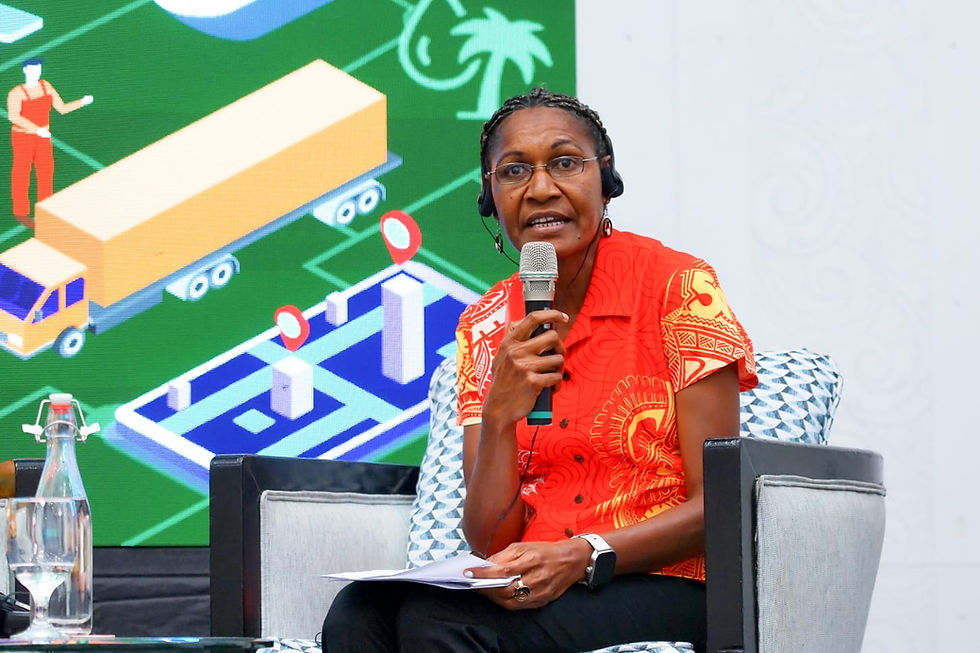Adapting to a Changing Climate: Seminar Explores Challenges and Opportunities for Agriculture in PNG
- May 15, 2025
- 2 min read
Grow PNG was invited by the Secretary of the Department of Agriculture and Livestock (NDAL) and the PNG-Australia Partnership to attend an Information Seminar titled “The Impact of Climate Change on Agriculture in PNG.” The event was held at the Gateway Hotel in Port Moresby on March 3, 2025, bringing together over 30 partners from various development sectors to discuss the growing climate challenges facing Papua New Guinea’s agricultural sector.

The seminar was presented by Honorary A/Professor Mike Bourke FAIA OL from the College of Asia and the Pacific at The Australian National University, Canberra. Professor Bourke provided compelling evidence of significant increases in temperature and rainfall in PNG over the past 50 years, identifying the most vulnerable environments and the implications for food security.
“Staple crops such as sweet potatoes, taro, and yams face threats from changing rainfall and temperature patterns, while major export crops like coffee, cocoa, and coconut are also vulnerable to climate variability.” Professor Mike Bourke
His presentation explored the potential impacts on both staple and export crops and outlined mitigation strategies to address these challenges while also identifying opportunities for resilience and growth. The greenhouse effect, a natural process that makes the Earth habitable, is being intensified by higher concentrations of greenhouse gases, leading to rising global temperatures. PNG has already experienced increasing temperatures and rainfall, significantly affecting crop yields and farming conditions. Rising land temperatures influence crop growth, while warming ocean waters disrupt fish distribution, abundance, and reproduction. Additionally, extreme weather events, sea-level rise, and shifting seasonal patterns pose risks to food security and biosecurity.
Staple crops such as sweet potatoes, taro, and yams face threats from changing rainfall and temperature patterns, while major export crops like coffee, cocoa, and coconut are also vulnerable to climate variability. To mitigate these effects, recommended strategies include controlled migration, increased cash income for villagers, and the adoption of climate-resilient crop varieties. Other critical measures involve reducing deforestation, expanding weather monitoring networks, and investing in agricultural research and extension services.
Despite these challenges, climate change also presents new economic opportunities for PNG. Carbon credit programs, funding from the UNDP Green Climate Fund, cultivating crops at higher altitudes, renewable energy development, and emerging green industries such as hydrogen production are potential avenues for sustainable growth.


Grow PNG’s participation in this seminar aligns with its ongoing efforts to support sustainable agricultural development in the Markham Valley. The insights gained will be shared with smallholder farmers through capacity-building workshops, community field visits, and collaborations with research institutions, private sector partners, and local communities to implement practical and scalable climate adaptation strategies.





Comments